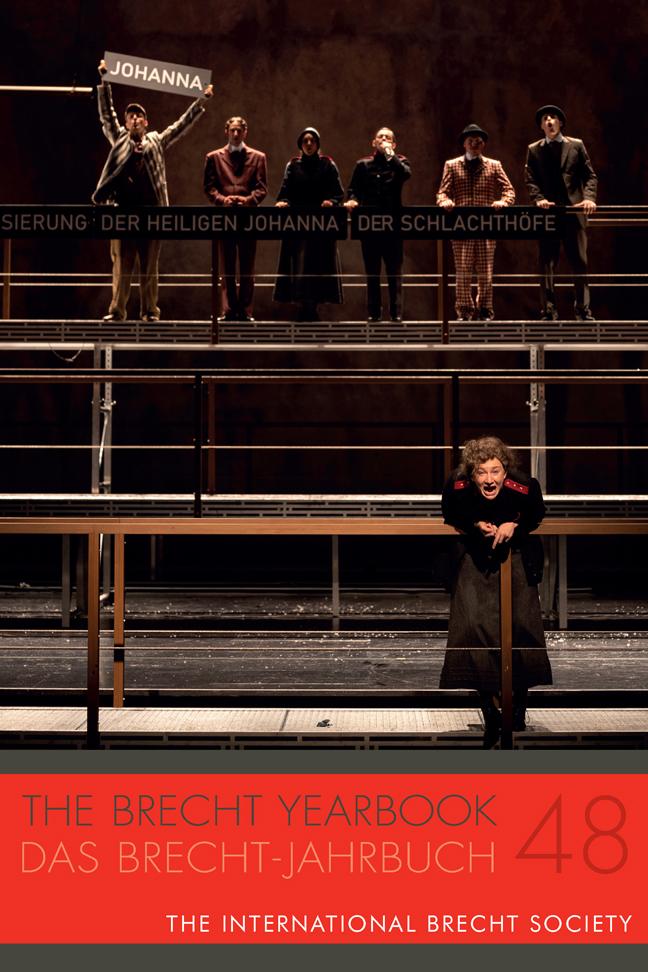Round Heads and Pointed Heads and the End of Avant-garde
Published online by Cambridge University Press: 22 February 2024
Summary
From Shakespeare to Contemporary Politics
The play known today as Bertolt Brecht's Die Rundköpfe und die Spitzköpfe (Round Heads and Pointed Heads) began development in 1931 as an adaptation of William Shakespeare's Measure for Measure. In Shakespeare's play, the Duke of Vienna leaves his deputy Angelo, a rigidly moral character, in charge of the city during his absence, hoping that Angelo will crack down on an increase in immorality (prostitution, extra-marital affairs) and save him from the stain of authoritarianism. Angelo's harsh public measures seem inappropriate, even more so as he himself abuses his power to extort sexual favors. The play ends with a deus ex machina re-appearance of the duke, who solves all conflicts, holds Angelo accountable and, in a parodic ending, marries off most of the protagonists. Shakespeare investigates both the standards (or measures) that apply to rulers and their subjects as well as the extent to which it is desirable that the law intervene into personal affairs.
From 1931 to 1938, Shakespeare slowly disappears as a reference, and the play is rewritten numerous times to speak to contemporary political events. It undergoes scene cuts and additions, new characters are introduced, and protagonists’ names and functions are changed. The story relocates from Austria to Peru and ultimately settles in a fictional place. Along the way, its title keeps changing as well. The version prepared for publication in the journal Versuche (Experiments) in 1933 is titled Die Rundköpfe und Spitzköpfe oder Reich und Reich gesellt sich gern. Ein Greuelmärchen (Round Heads and Pointed Heads or Money Calls to Money. A Tale of Horror). In 1934, Hanns Eisler contributes multiple songs reminiscent of Kurt Weill's compositions for the Dreigroschenoper (Threepenny Opera) in their use of jazz and popular music. He visits Brecht twice in Denmark to collaborate on every aspect of the play. Over the years, there are many collaborators on this work: Elisabeth Hauptmann as well as Ludwig Berger, Margarete Steffin, Emil Hesse-Burri, and Hans Borchardt.
Die Große kommentierte Berliner und Frankfurter Ausgabe (BFA), invested in the notion of Brecht's individual authorship, tends to reduce these contributions to suggestions which he, Brecht, accepted. Borchardt’s “Vorschläge zur besseren Motivation und zur Raffung der Handlung werden von Brecht aufgegriffen” (“Borchardt's suggestions for a better motivation and condensation of the action are taken up by Brecht”).
- Type
- Chapter
- Information
- The Brecht Yearbook / Das Brecht-Jahrbuch 48 , pp. 273 - 294Publisher: Boydell & BrewerPrint publication year: 2023

